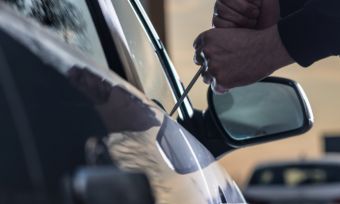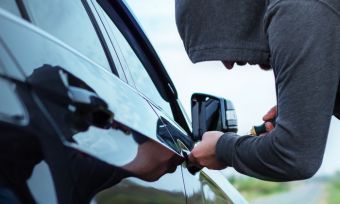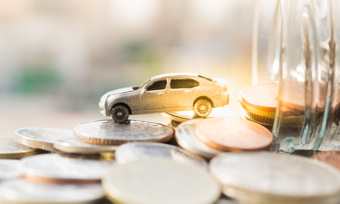The saying goes that a car loses value the moment you drive it off the lot. But how much value is that? And what about a year or two, or three, later? While predicting the exact depreciation your car will experience isn’t an exact science, it’s almost guaranteed that a car will depreciate in value over its lifetime.
Canstar looks at the factors that impact a car’s depreciation, and how you can minimise depreciation on any new car you buy.
In this article we cover:
What is depreciation?
How much do cars depreciate?
What factors impact depreciation?
How to minimise depreciation
What is car depreciation?
Depreciation is a decrease in value over time. Even if a car is kept in great condition, as it ages it loses value simply because it’s getting older. A range of factors can lead to higher or lower rates of depreciation.
Do all cars depreciate?
Almost all cars depreciate in value. And, most likely, any car you purchase as a family runaround will suffer from depreciation.
Typically, only sports cars and other prestige vehicles increase in value as they age. But even then, only certain models that have been kept in pristine condition.
So unless you’ve a car that’s garnered a cult following among wealthy car collectors, depreciation is likely unavoidable.
How much does a car depreciate?
Not all cars depreciate by the same amount. Many factors impact depreciation and it’s not a set figure.
So while we can try to estimate how much a car depreciates, or look at the average price a certain car sells for second-hand, it’s very difficult to set exact depreciation figures.
However, depreciation is generally scaled with the original price paid, so the more expensive a car, the more you’ll lose to depreciation.
Generally, you can expect your vehicle to lose around a third of its value (or more) during the first three years of ownership. The rate of depreciation then decreases after that period.
If your car is sought after, (for a range of reasons we cover below) it’ll likely depreciate less than other similar models.
Not all cars depreciate at the same rate: factors to consider
What factors impact a car’s depreciation in value, and how you can help minimise it?
New cars
Buying a brand new car in New Zealand can cost you a lot in depreciation.
For starters, a brand new car becomes a used car the moment it leaves the lot. As a result, it depreciates by 15% the moment you buy it due to the GST component of its asking price. And then, by about another 10% in the first year. That means a $50,000 new car could be worth less than $40,000 after only one year.
The level of depreciation slows down as the car gets older, as long as you maintain it. And some new cars depreciate less than others. But the fact remains, brand new cars are hit by the highest levels of depreciation.
Fleet cars
Many new cars in New Zealand are sold to fleet car businesses, such as rental car companies. Because these companies buy in bulk, they receive substantial discounts on the price of the cars they purchase. This means a few years down the line, they can afford to resell them at a discount too.
So come time to sell your car, if it’s a model that’s popular with bulk car buyers, you may find yourself pitching your car against a large number of similar, cheap ex-fleet cars. This could bring down the resale price of your vehicle and could contribute to higher depreciation.
Car class
SUVs are the most popular type of car on our roads. So it follows that there’s also a bigger resale market for them. Even Kiwis looking for smaller cars tend to go no smaller than a compact SUV or crossover. Sedans are well out of fashion.
Colour
When considering depreciation, you not only have to consider the resale value, but also how likely it is to sell. Sure the car might be worth $20,000, but you still need to find someone willing to buy it. A strange colour choice will reduce your pool of willing buyers.
The car’s reputation
Whether justified or not, some cars simply have a better rep than others. Here in New Zealand, we love Japanese cars. They’re seen as cheap, reliable, familiar, and easy to fix. On the other hand, we’re less familiar with a lot of European models, and many Kiwis are more hesitant to buy them.
Opting for a car with a good reputation and familiarity could make resale much easier.
Kiwis are big consumers of utes and family friendly SUVs from brands we know and trust (thereby increasing their perceived value and minimising their depreciation). So while it’s hard to say for certain, you can assume that a Toyota SUV will probably depreciate less than a Peugeot hatchback. Simply because more Kiwis are likely to be in the second-hand market for the former.
Furthermore, not all releases of the same model are equal. Car manufacturers constantly update and re-release their most popular models. To varying degrees of success. And newer isn’t always better. A 2020 model may have been a smash hit and thus have great resale value. While a newer 2022 model could have been riddled with design flaws and be less popular.
It pays to not only research makes and models, but years, too.
How to minimise depreciation
One of the best ways to avoid depreciation is to not buy a brand-new car. Some other steps to minimise depreciation could be to:
- Avoid cars popular with rental companies – not only can this avoid rental car stigma, but you won’t be competing with rental companies flicking off vehicles for cheap.
- Choose a popular vehicle class – such as SUVs and crossovers.
- Pick a safe colour – nothing too out there, both inside and out.
- Choose a car that is seen as reliable – Mitsubishi, Toyota, and Nissan all have long-standing histories in New Zealand and Kiwi consumers are familiar with them. These may be better choices over lesser-known European brands.
Some steps you can take to minimise the depreciation of your existing vehicle include:
- Look after your car – keep it clean and tidy, keep it serviced (and keep service records) and repair any damage.
- Keep the car for longer – spread over 10 years, steep depreciation is less of a factor, but expect increased maintenance costs.
- Drive less – cars with fewer kilometres hold their value better.
Do your research
If you’re looking at buying a new car, search around to get as much info as you can. One great way to measure depreciation is to keep an eye on second-hand sales on sites such as TradeMe, and to compare them to the sticker prices of those vehicles. This can give you an idea of how much the cars are losing in value.
Another great way to minimise depreciation is to get a great price on your car purchase. If you pay too much for the car, you’ll be hit harder by the loss of value come resale.
And if you’re using a car loan to purchase your vehicle, it’s important you get the right loan at the cheapest price. And that’s where Canstar can help. We compare personal loan providers, to help you get the best loan.
Compare car loans with Canstar
About the editor of this page
Bruce Pitchers is Canstar NZ’s Content Manager. An experienced finance reporter, he has three decades’ experience as a journalist and has worked for major media companies in Australia, the UK and NZ, including ACP, Are Media, Bauer Media Group, Fairfax, Pacific Magazines, News Corp and TVNZ. As a freelancer, he has worked for The Australian Financial Review, the NZ Financial Markets Authority and major banks and investment companies on both sides of the Tasman.
In his role at Canstar, he has been a regular commentator in the NZ media, including on the Driven, Stuff and One Roof websites, the NZ Herald, Radio NZ, and Newstalk ZB.
Away from Canstar, Bruce creates puzzles for magazines and newspapers, including Woman’s Day and New Idea. He is also the co-author of the murder-mystery puzzle book 5 Minute Murder.





Share this article